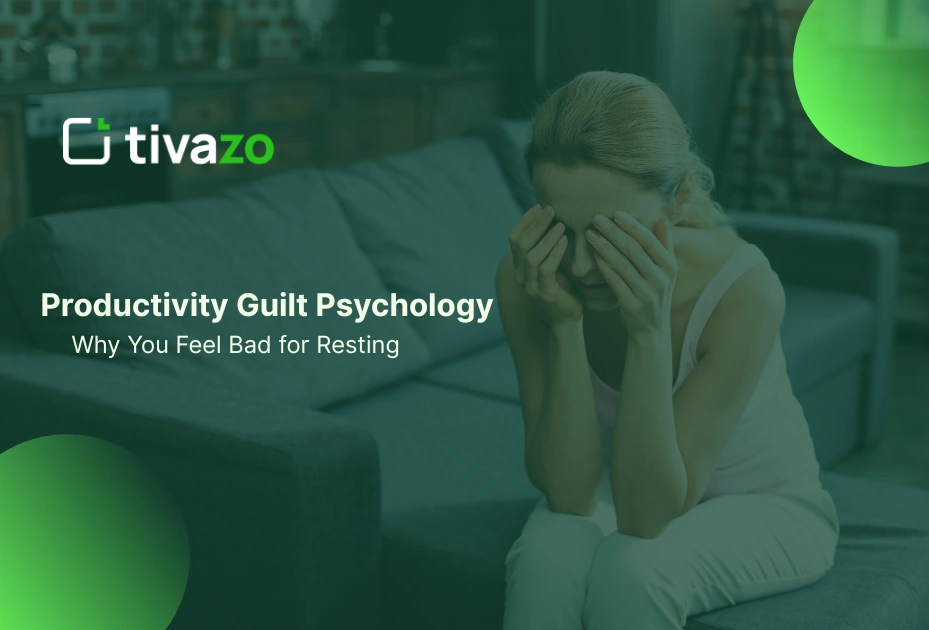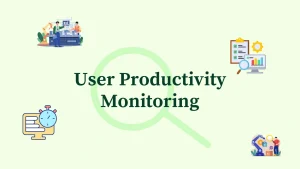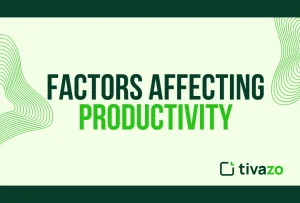Productivity guilt psychology is the unpleasant feeling we get when we are not working, even though we deserve rest.
You may have heard its other names: rest shame, burnout guilt, or always-on anxiety. It steals in on weekends, wakes up from a nap, or during all those vacation moments of recovery.
This is partly due to the sense that every moment needs to be “productive.” The reality is that productivity guilt psychology is a symptom of the internalization of hustle culture and of the devaluing of rest.
Signs You Might Have Productivity Guilt
Do these sound familiar?
- You feel guilty for oversleeping, even when you’re tired.
- You have a hard time unwinding without worrying about your to-do list.
- You get anxious during breaks. You feel like you’re wasting time.
- You make up for it by working late after a couple of hours off.
- You even measure self-worth in terms of output.
If so, you’re not lazy — you’re stuck in the guilt loop.
Why You Feel Guilty for Resting
1. Digital Life & Constant Connectivity
Smartphones have put work and leisure time on a collision course. Notifications have no regard for the fact that it’s 10 PM on a Saturday. The influencer culture of social media platforms, with productivity gurus and study-with-me influencers, normalizes constant work.
This 24/7 connectivity wires your brain to stay on even when it should be off.
2. Childhood and Societal Conditioning
A lot of us were raised on the idea that hard work is a virtue, and rest is lazy. There’s a tendency among many families in the world to focus on sacrifice and obligation: “Don’t waste your time, study harder, you work and then you will enjoy.” These beliefs can follow us into adult life, affecting how we treat rest.
3. Internalized Perfectionism and Fear of Falling Behind
If you believe you constantly have to prove yourself, breaks will feel dangerous. You are afraid of missing out, of being perceived as lazy, of getting left behind by peers. This attitude turns rest into something unsafe, as opposed to a necessity.
The Link Between Mental Health and Productivity Guilt Psychology
Productivity guilt Psychology isn’t just an annoyance, it’s harmful. Chronic guilt about resting may cause:
- Struggling with mental health can make guilt worse: When you’re suffering from anxiety, depression, or emotional exhaustion, it’s also natural to need more rest. But in a culture that always exalts being productive, that rest comes with guilt. You might feel as if you’re falling behind or not doing enough.
- Guilt can damage your mental health: Guilt over napping can, over time, cause long-term emotional distress. This guilt ultimately adds to:
- Increased anxiety
- Feelings of depression
- Chronic burnout
- Sleep disturbances
- Mood swings and emotional fatigue
- The relationship is cyclical: We feel mentally as though we need rest, but we feel guilty if we rest. That emotional tension compounds stress, creating a cycle that’s tough to break.
- This experience is not laziness: You have to recognize that needing rest, or feeling demotivated when you are mentally exhausted, is not a moral failing but a condition of your psyche.
- The path forward begins with compassion: Understanding the connection between productivity guilt Psychology and mental well-being allows you to react with kindness, not criticism. Permitting yourself to rest is one step in the healing process.
The Hidden Cost of Always-On Anxiety
Living in a constant state of “go” might feel productive, but it’s also quietly depleting your mental resources, and when your brain doesn’t get the downtime it needs to rejuvenate, you’ll start to suffer the consequences — often in ways that are subtle, but also disastrous. This constant state of vigilance, in the long term, can cause:
- Brain fog and lack of focus
- Decreased creativity and problem-solving
- Finding it difficult to retain new information or to learn
- Flagging motivation and energy
- Continued errors and lack of attention to detail
Since your body requires replenishment with sleep, so does your mind, in order for it to perform optimally. Without it, you’re just not working at full capacity. No matter how many hours you’re logging.
How Social Media Triggers Guilt for Resting
Social media platforms like YouTube and Instagram inundate us with curators curating content of people “crushing goals” every second, 24 hours a day, nonstop. Influencers of productivity share their 5 AM regimens, color-coded planners , and an infinite number of side hustles.
This creates a toxic comparison loop:
- “I should be doing more.”
- “Why am I not working?”
- “I feel behind if I rest.”
To protect yourself:
- Unfollow “grind” content
- Curate a rest-positive feed
The Role of Identity in Productivity Guilt Psychology
If your identity is rooted in being an achiever, the rest can feel like failure. This is common among:

- Students with high expectations
- Entrepreneurs
- Perfectionists
- First-generation professionals
You begin to think:
“If I’m not producing, I’m not valuable.” Your healing journey starts when you disentangle your worth from your work.
Burnout Guilt: When You Can’t Work, But Still Feel Bad
One of the most painful contradictions is being too exhausted to work, but you still feel bad for not working. This often means you’re not lazy, you’re burnt out.
These are Burnout symptoms:
- Emotional numbness
- Loss of motivation
- Cynicism
- Mental fatigue and Physical fatigue
- Self doubt
- Difficulty concentrating
When burnout hits, rest is medicine, not weakness. Guilt at this stage delays healing.
When Rest Becomes Another Task
In our quest to beat the guilt that comes from not being (or doing) enough, many of us then end up making rest just another thing to do. We meditate cause we think we should, book in yoga like a meeting, and convince ourselves that rest just must mean we’re more productive tomorrow. By doing so, you rob the rest of its capacity to heal.
If we monitor, improve, and track each second of that downtime, it’s no longer a genuine break but a new area that can be optimized. Rest that is real is not usually planned or purposeful. It can look like sitting on the couch, aimlessly scribbling, or even flat out doing nothing at all at times.
How to Overcome Productivity Guilt Psychology and Embrace Rest
These are the few things we can do to stop feeling guilty for resting:

1. Mindset Shifts
- Rest is not a reward, it’s a right of everyone.
- Doing nothing is doing something
- Your worth is not combined with your output
2. Rest Strategies That Work
- Active rests like nature walks, mindful cooking, and reading
- Passive rest, like naps, daydreaming, and unstructured quiet time
- Scheduled rest like time-block breaks so rest becomes part of your plan, not something you steal
3. Productivity Tips That Support Mental Wellness
- Pomodoro technique (25/5 rule)
- “3 MVPs” (Most Valuable Priorities) instead of overstuffed lists
- Digital detox time: no screens during meals or after 10 PM
4. Grounding Practices
- Gratitude journaling
- Mindfulness meditation
The cultural origins of feeling guilty about resting
What we believe about rest is often rooted in powerful cultural narratives. In many societies:
- Hard work is tied to morality, and rest is equated with laziness.
- Productivity becomes proof of worth, especially in communities shaped by hardship or survival mindsets.
- Religious or family values may promote self-sacrifice, making rest feel selfish.
Understanding these cultural scripts can help us rewrite them for ourselves and future generations.
The Gender Gap in Productivity Guilt Psychology
Productivity guilt psychology is not, however, a one-size-fits-all phenomenon. Women, especially, are frequently hit hardest because they are expected to do it all:
- Juggling work and caregiving while doing the emotional labor and the housework
- Feeling guilty about time not spent on tasks or working, even for headspace
- Adopting the belief that rest needs to be “earned” by over-delivering
To address these gendered norms would mean creating parity in rest, with shared responsibilities and guilt-free downtime.
How to Talk About Rest Without Feeling Ashamed
Sometimes it feels even embarrassing to say you rested. But we need to make these conversations feel more normalized. Try:
- Saying, ‘I took time off to recharge,’ and not making excuses
- Sharing how rest enhances your clarity and performance
- Promoting team or peer conversations on boundaries and burnout
When we’re up-front about what we need, we help others feel able to do the same, and chip away at there being collective rest shame.”
The Science Behind Why Rest Boosts Productivity
Rest isn’t just a break—it’s essential for your brain’s function. Research shows that adequate rest:
- Improves memory consolidation
- Boosts brainpower , Creativity, and problem-solving.
- It can help to control emotions and manage stress
- Optimizes overall brain function
Now, some science can help ease your guilt about sleeping and shift your mindset from guilt to gratitude when you do carve out some time to rest.
Technology and the Myth of Multitasking
Unrelenting digital distractions erode our ability to rest or focus. Multitasking is a productivity myth that often causes burnout and self-recrimination. Instead:
- Practice single-tasking for deeper focus
- Set boundaries on device use, especially during breaks
- Use technology mindfully to support—not sabotage—your rest.
Rest as Radical Self-Care
In a world that prizes hustle, choosing rest can be a powerful act of self-love and resistance. Resting:
- Protects your mental and physical health
- Reinforces boundaries against burnout culture
- Empowers you to prioritize your needs without shame
Reframing rest as self-care makes it a radical tool for well-being.
How to Create a Rest-Friendly Environment at Home
Your surroundings impact your ability to truly rest. Small changes can make rest easier and guilt-free:
- Designate a “rest zone” free of work distractions
- Keep your phone away during downtime
- Use calming scents, lighting, or sounds to cue relaxation
- Establish routines that signal it’s time to unwind
A supportive environment helps your brain switch off and recharge.
The Role of Sleep in Overcoming Productivity Guilt Psychology
Let’s be real—sleep’s always the first thing to go when you’re trying to Get Stuff Done. Like, “I’ll just power through,” you tell yourself, but honestly? That’s a fast track to grumpy-town. Skipping sleep just makes you more irritable, stressed, and way more likely to spiral into that “I’m not doing enough” headspace. Your brain’s foggy, your decisions get weird, and suddenly, you’re making three cups of coffee just to remember your name.
If you start treating sleep like the non-negotiable it is (for real—just try it), you’ll be shocked at how much less guilt you feel about resting. It’s like, “Oh, I’m a functional human again.” Wild.
How Mindfulness Practices Can Ease Productivity Guilt Psychology
Teaches to observe the thoughts and feelings without judgment. It can
- Help you recognize when guilt is creeping in
- Reduce anxiety about not being productive
- Foster acceptance of rest as a necessary and valuable part of life
Distribution of Productivity Guilt Psychology Among People
Productivity guilt psychology is more common than you might think, and it affects people of all ages and job types. Reports and studies looking at recent surveys:

- And yet 65-70% of adults admit to feeling guilty when they take time off or rest.
- And 30 to 35% report that they seldom or never feel guilty about taking a break.
This means the vast majority of us — about two-thirds of people — wrestle with guilt around downtime. The reasons vary, but usually involve societal expectations, work demands, and personal beliefs about worth and productivity.
Realizing that productivity guilt psychology is widespread may help normalize those feelings and lead to more compassionate self-care.
Conclusion
Productivity guilt psychology isn’t an indication of laziness — it’s a symptom of a culture that fetishizes exhaustion and undervalues well-being. But you are not a machine. Your value isn’t connected to what you can produce, and the rest isn’t something you have to earn. It’s your human right.
By understanding the roots of guilt, recognizing its impact on your mental health, and making a mental shift, you can restore rest into something sacred, not something shameful. We can also learn time management for our work. This isn’t about doing more; it’s about living with clarity, intention, and peace.
Take a guilt-free break today—even if it’s just 10 minutes of silence.




